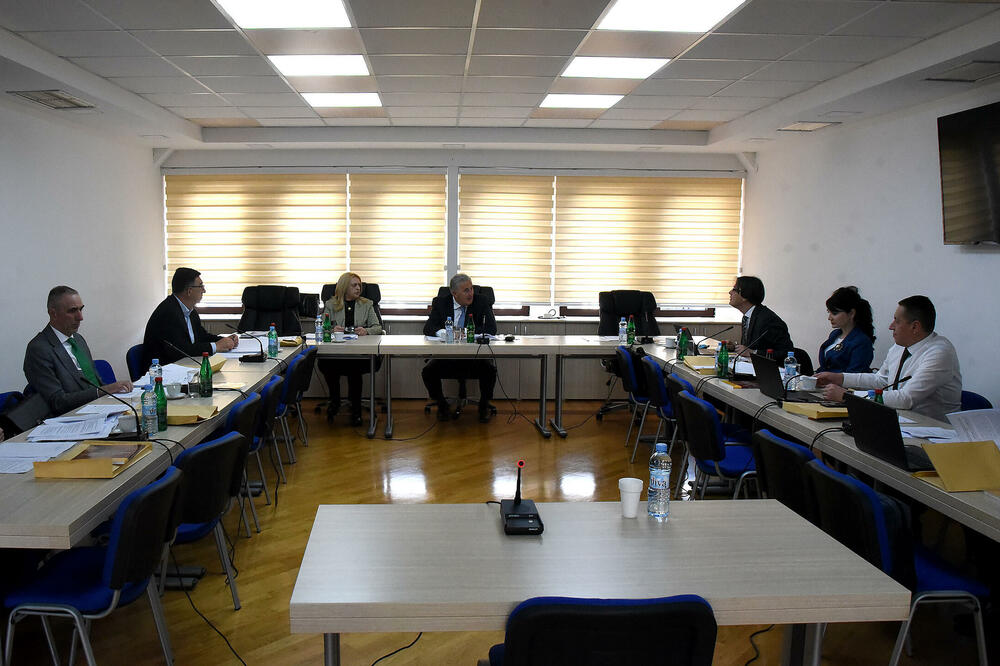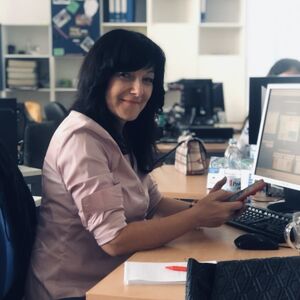President of the High Court Boris Savić said today that everything related to Budva and economic crime in that city started from his office when he was the main prosecutor in Kotor.
He said this before the Judicial Council, which interviewed him as a candidate for a judge of the Court of Appeal.
"Everything related to Budva started from my office," Savić said when asked which event was the turning point in his career.
In September 2016, Savić sentenced the former high-ranking official of the Democratic Party of Socialists (DPS) Svetozar Marović to one year and 10 months in prison and to pay 50.000 euros to the state budget, and around one million to the account of the Municipality of Budva, due to numerous frauds in that city. although the damage caused by the Budva criminal group of prominent officials to the municipal budget in eight criminal affairs amounts to 45,5 million euros.
In addition to Savić, the members of the Judicial Council today interviewed the other six candidates - Commercial Court judge Dijana Raičković, special prosecutor Zorica Milanović, Podgorica High Court judges Vojislavka Vuković Goločevac and Predrag Krstonijević, Ulcinj Elementary Court judge Gazmenda Kalabrezija and Bjelo Polska High Court judge Dragana Mrdaka.
The list of candidates was compiled on the basis of two public announcements for the election of a total of two judges of the Court of Appeal, which were announced on September 11 last year and on February 12 this year.
The questions for the candidates were from the Interview Guidelines - what motivated them to apply for the ad, which case was a turning point in their career, did they ever have difficulties in communicating with colleagues and how did they resolve them, did the judges' dissenting opinion in the Council, a reflection of their independence, what skills must a judge have...
Speaking about his past work, Savić said that his financial situation has not changed since he came to the High Court (in 2014).
"I earned one apartment and that's all, and no one from my family is connected to organized criminal groups," claims Savić, who was accused by the opposition of being a "special DPS party judge" before the change of government in 2020.
He applied to be a judge of the Court of Appeal, as he says, because after so much time and two terms as president of the High Court (since 2014), he has exhausted all his strength and needs a change.
"I think I can answer everything that is asked of the judge of the Appellate Court," he said.
Speaking about the work in the High Court, he said that the court gives the final product, i.e. the verdict, but there are many other bodies and individuals on which it depends, but very little emphasis is placed on them.
"This court had many difficulties in its work, and according to some mantra, the High Court is blamed for everything, and according to the same mantra, its president," he pointed out.
As he added, anyone else in that chain can make an appointment and everything translates into "the court postponed the hearing".
When asked how many cases he had from which he would have to recuse himself as a judge of the Court of Appeal, he answered that there were about 2.000 per year.
Commenting on the separation of opinions in the Council of Judges, he said that it is not unusual and that it even improves the work of the Council.
He believes that a judge must have a certain breadth and know things that are not related to the judge's work.
The other candidates gave a similar answer to the question of what skills a judge must have, but they emphasized that a judge must be honest, impartial, independent and must not damage the reputation of the profession with his behavior.
Special prosecutor Zorica Milanović said that after 21 years of work in the prosecutor's organization, the position of judge, for which she ran, is an additional incentive for her to fight for the rule of law.
"By submitting the application, I expressed my willingness to accept the responsibility for making a court verdict. We are witnessing the criticism of the European Commission that more legally binding court verdicts are needed," she recalled.
She claims that she would easily adapt to work in court, because both judges and prosecutors behave in accordance with procedural rules.
Commercial court judge Dijana Raičković pointed out the complexity of the case in that court, which is why, she believes, the standard is set too high.
Speaking about her work, she highlighted the case of the sale of the ship Orjen of the former Jugooceanija.
She said that she inherited the case and passed a decision on the sale, in order to settle the creditors - the crew and seafarers who were not paid their wages.
However, as she reminded, the claims were settled only by the captain and the crew, not the sailors on other ships because they were in the last line of payment.
Judge Vuković Goločevac pointed out that she previously ran for High Court judge several times, and 11 times for Basic Court judge, which best speaks of her desire to advance in the judiciary even though she had some other, financially better offers.
"I follow my principles and I haven't had any problems in my work so far," said Vuković Goločevac, adding that a judge must be professional and independent. Judge Gazmend Calabrezi said that the pursuit of justice was his main motive for applying for the competition.
He believes that even though he comes from the Basic Court, i.e. he has not worked in the High Court, he has a certain experience that recommends him as a judge of the Court of Appeal.
Judge Predrag Krstonijevic said that as a judge of the Basic Court in Kotor, he had two cases that influenced him to "think in a fair way", one was in the area of parental rights, and the other concerned property rights. Although he has only been in the High Court for two years, he believes that he has acquired additional skills and knowledge for working in the Court of Appeal.
"I believe that I can fulfill the task, I have been working in the High Court for two years and there are dissatisfactions in terms of organization, working conditions, lack of associates... I competed for the President of the High Court in order to change that, and for the Judge of the Court of Appeal in order to avoid it" , explained Krstonijevic and his candidacy for president of the High Court.
Judge Dragan Mrdak said that for some time "the field did not recognize him" and that applying for the position of judge of the Court of Appeal is a normal sequence of events in his career, and if he is not accepted, he will remain where he is, that is, in the High Court of Bijelo Polje. The Judicial Council should make a decision on the new judges of the Appellate Court tomorrow.
Bonus video:





